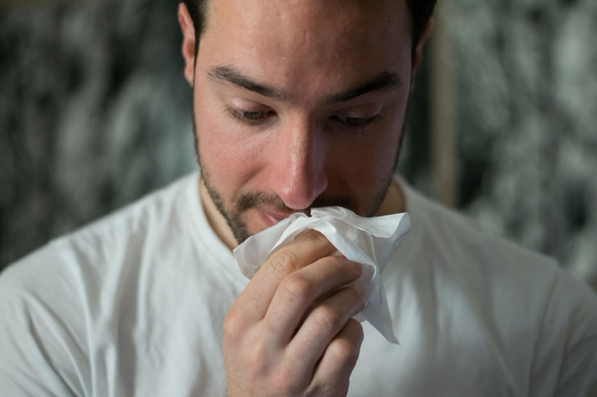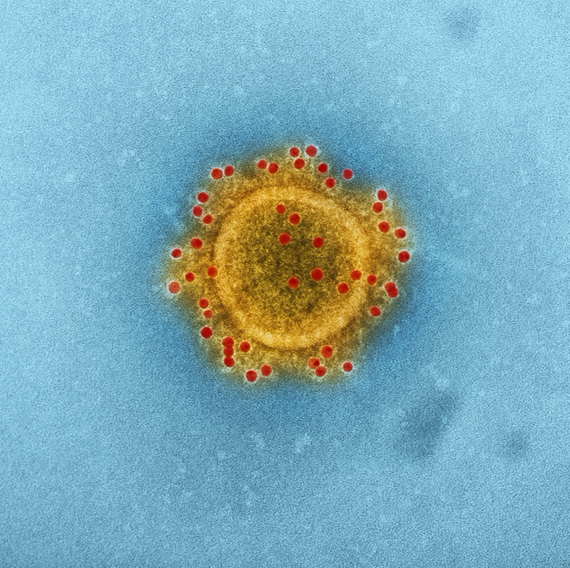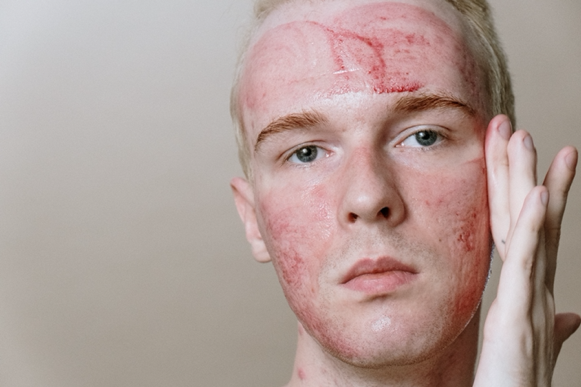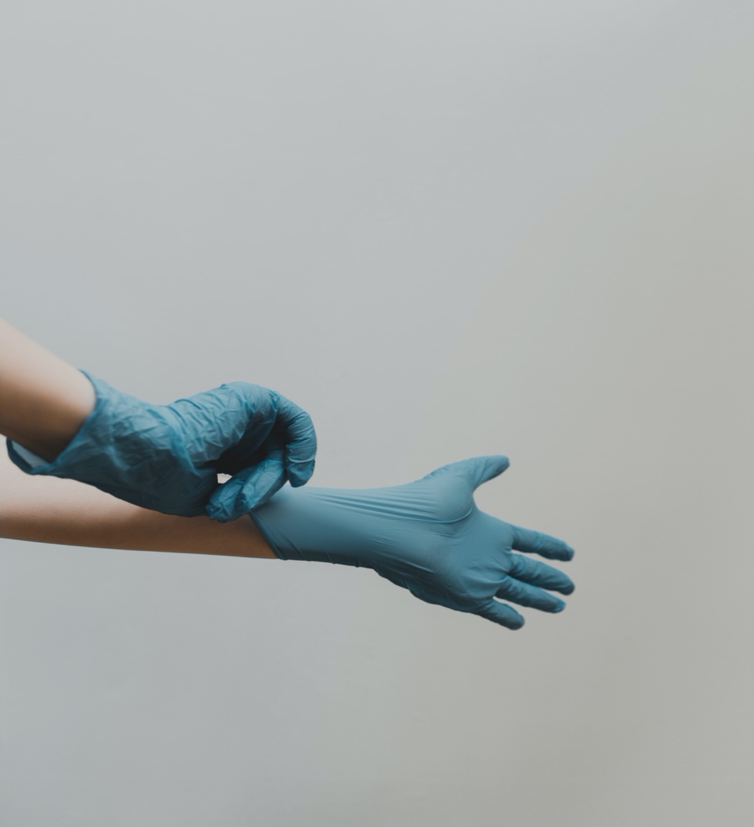Monthly Archives: January 2021
Types of Allergic Reactions
What are the different types of allergic reactions? The immune system in the body is responsible for protecting us against bacteria and viruses. This system consists of certain components that make up your blood, and fight against any harmful substances that are a threat to your body. This defense mechanism enables your body to eliminate unfavorable substances.
In some cases, your immune system may respond to substances that are not exactly a lethal threat to your health. This happens when you have an immune system that is highly sensitive to foreign substances that enter your body.
The medical term for these substances is allergens. When allergens find ways to enter your system, you experience physiological changes in your body. These changes are due to an allergic reaction. You create a path of entry for these allergens by touching, inhaling or eating them. Each person can be allergic to specific substances. However some substances are more common than others.
Doctors also use allergens for diagnosis and treatment. The method of vaccination involves injecting micro doses of allergens to manipulate an immune response that can be helpful for you.
Types of Allergic Reactions
People may experience allergic reactions of different types depending on their condition. Some allergic reactions classify under immediate reactions. These reactions do not take time to occur and happen rapidly. On the other hand, allergic reactions classify under delayed allergic reactions, and these can typically take about 24 hours to occur.
Anaphylactic Reaction
This type of allergic reaction is one of the most severe reactions. It can happen within minutes of exposure and can be life threatening. Doctors may also call this an anaphylactic shock and it is a serious medical emergency. People who suffer from anaphylactic reaction may go through swelling, difficulty in breathing, and changes in blood pressure.
A person may experience this reaction due to the exposure of pollen, certain foods or insect bites. Furthermore, a patient with bronchial asthma is very susceptible to an anaphylactic shock.
Immunocomplex Reactions
Just like anaphylactic reaction, antibodies and proteins mediate an immunocomplex reaction. In this reaction, antibodies bind with allergens to form immunocomplexes, causing an allergic reaction in a person. This reaction is also an immediate response, commonly seen in people with lupus and serum sickness.
Cytotoxic Reaction
This type of reaction is also an immediate reaction. Patients with autoimmune blood disorders like anemia or ITP suffer from cytotoxic reactions. This reaction initiates when the antibodies activate the complement system in our bodies. This system is a component of our immunity, which causes the antibodies to work against the favor of your system, resulting in cell damage. Therefore, the cyctotoxic reaction is an autoimmune response to allergens.
Cell mediated Reactions
These types of allergic reactions are delayed allergic reactions, and the symptoms for these reactions can take 24 hours or more to appear after the exposure to allergens. Long-term infectious diseases like tuberculosis and certain fungal infections produce cell mediated reactions.
Types of Allergic Reactions: Triggers
Certain external substances are responsible for triggering an immediate allergic response in people. These include:
- Certain foods, such as peanuts, milk, red meat, fish, shellfish, wheat
- Dust particles
- Pollen particles
- Latex
- Insect bites
- Cockroaches
- Pet dander
- Certain plants
- Medications, such as aspirin, ibuprofen, penicillin
- Certain type of metals
- Grass
Symptoms of an Allergic Reaction
An allergic reaction is symptomatic, and some of the common symptoms include:
- Sneezing, runny rose, excessive production of mucus, blocked nasal passages. You can experience these symptoms when you have allergic rhinitis
- Itchy, red and watery eyes (Allergic conjunctivitis)
- Headache and migraines
- Tightness of chest, difficulty in breathing, coughing
- Red itchy rashes on skin(hives)
- Chest congestion
- Swelling on face, lips, fingers or feet
- Stomachache, diarrhea, vomiting,
Diagnosis and Treatment
An allergist specializes in the diagnosis and treatment of allergies. They use different approaches for diagnosis and treatment depending on the severity of the condition. Professionals can diagnose acute allergic reactions by simply observing the symptoms, while chronic conditions may require special tests and blood work.
When an allergist identifies the triggers, they come up with the most suitable treatment for you. These treatments range from pharmaceutical drugs to natural remedies. While there is not really a cure for allergic diseases, temporary solutions can immensely help you live your life unbothered.
Types of Allergic Reactions: Conclusion
Regardless of the treatments, it is important to keep in mind that prevention is better than cure. Therefore, avoiding allergic triggers is the best way to go about. An immunologist or allergist specializes and practices specifically for immune related conditions.
If you suffer from problems such as allergies, asthma, autoimmune disease, or any immunodeficiency disease, you should book an appointment with Dr Sneeze to find an adequate solution and get relief as soon as possible.
Call today for an appointment 212-679-1200.
Hives on Face
Can you get hives on the face? Hives are itchy, red skin rashes that appear on your skin. The medical term for hives is urticaria, and they mostly present on the face. Hives on your skin can appear in response of an allergen or sometimes without any cause at all. For those who don’t know, allergen’s cause allergic reactions.
Biological Mechanism
Hives are predominantly an allergic response, and this reaction causes your body to release histamines, which is a protein. When your body releases histamines, the tiny blood vessels under your skin leak a fluid that accumulates in the skin and causes a red itchy rash.
Types of Hives
There are two types of hives, ordinary hives and chronic hives
Ordinary Hives: This type of hives is quite normal in people. You may experience it due to the exposure of certain external stimuli. It lasts a couple of hours and goes away.
Chronic Hives: This type of hives is mostly idiopathic. This means that no one can tell the cause of it and it may even last a couple of months.
Hives on Face: Symptoms
The symptoms of hives include swellings or wheels appearing as a rash on the surface of your skin. They are round in shape and their color is pinkish or red. You will experience extreme itchiness on these rashes as they begin to appear. Furthermore, they are likely to appear on your face in big numbers, and can also show up on your hands, legs, fingers, toes and fee.
Symptoms can normally diminish in 24 hours but there is always a change of re-appearance. They can appear in different parts of the body at the same time. Some people with chronic hives will experience symptoms that could last for months and even years.
Hives on Face: Causes
There are certain causes for hives that are more common than others, these include
Medications
Some people cannot tolerate certain medications and may exhibit an allergic response to them. These medications may include penicillin, aspirin, ibuprofen and blood pressure medications.
Airborne Allergens
Airborne allergens are tiny particles that hover along with the air. Breathing the air that contains these allergens can cause an allergic reaction in the form of hives. These allergens are specific to individuals but the most common ones are pollen and dust particles.
Foods
Some foods can trigger hives in certain people. These include peanuts, eggs, milk, soy and others.
Environmental
Certain environmental stimuli can have adverse affects in the form of hives. These may include over-exposure to sunlight, vibrations by machines, insect bites, stress and certain fabrics of clothing.
Stress
Doctors also link hives with stress. Being stressed out could massively worsen inflammatory responses. Therefore, chronic stress is can ultimately worsen the allergic reaction that is Hives.
Hives on Face: Diagnosis
The doctor is likely to diagnose and treat acute urticaria and chronic urticaria differently. This is because of the pathological differences between them. Chronic hives can be idiopathic and auto immune. This means that no one can tell the cause and the person’s own immune system may be making it worse. While on the other hand, acute urticaria or hives is much less severe and occurs as a response to external factors.
Acute Urticaria Diagnosis
The doctor will diagnose acute Urticaria by simply examining the rashes and ask the patient basic information of the occurrences of this allergic reaction. If the patient is aware of the triggers and has a history of previous occurrences, the health profession will likely appoint the patient to an experienced allergist.
Chronic Urticaria Diagnosis
For this type of Urticaria, the doctors are likely to conduct specific tests on the patients. These may include blood test, liver function test, stool sample test and thyroid test. The doctors conduct these tests to look for any dysfunction or deficiency that a person may have that is causing this issue.
Hives on Face: Treatment
In some cases, taking over the counter drugs can be helpful for people with Urticaria. However, these may only be able to provide temporary relief. While other helpful methods reside in the form of home remedies, these include using cold object to compress your skin. This is helpful because it can alleviate you from the burning and itchy sensation on your skin. There are also anti-itch bathing products, which you can use to minimize this issue. Furthermore, you use many natural anti-inflammatory products to apply on your skin like Aloe Vera.
To Conclude: Consult With Dr. Boyan Hadjiev, NY’s Top Allergist
There are many natural and over the counter options that can provide you with temporary relieve from the hives on your face. However, the best and most efficient solution for acute urticaria is prevention and precaution. Avoiding the stimulus that triggers the allergic reaction should be your first choice of prevention.
If you suffer from hives and want to learn the best options for treatment, contact Dr. Boyan Hadjiev, New York’s most experienced and trusted allergist.
Boyan Hadjiev, MD
30 East 40th Street
(Btwn Madison and Park)
Suite 1200
New York, NY 10016
212-319-5282
Serving all of New York City and the Tri State Area including Zip Codes: Top Allergist NYC Midtown, Chelsea and Clinton: 10001, 10011, 10018, 10019, 10020, 10036 | Gramercy Park and Murray Hill: 10010, 10016, 10017, 10022 | Greenwich Village and Soho: 10012, 10013, 10014 | Lower Manhattan: 10004, 10005, 10006, 10007, 10038, 10280 | Lower East Side: 10002, 10003, 10009 | Upper East Side: 10021, 10028, 10044, 10128 | Upper West Side: 10023, 10024, 10025




